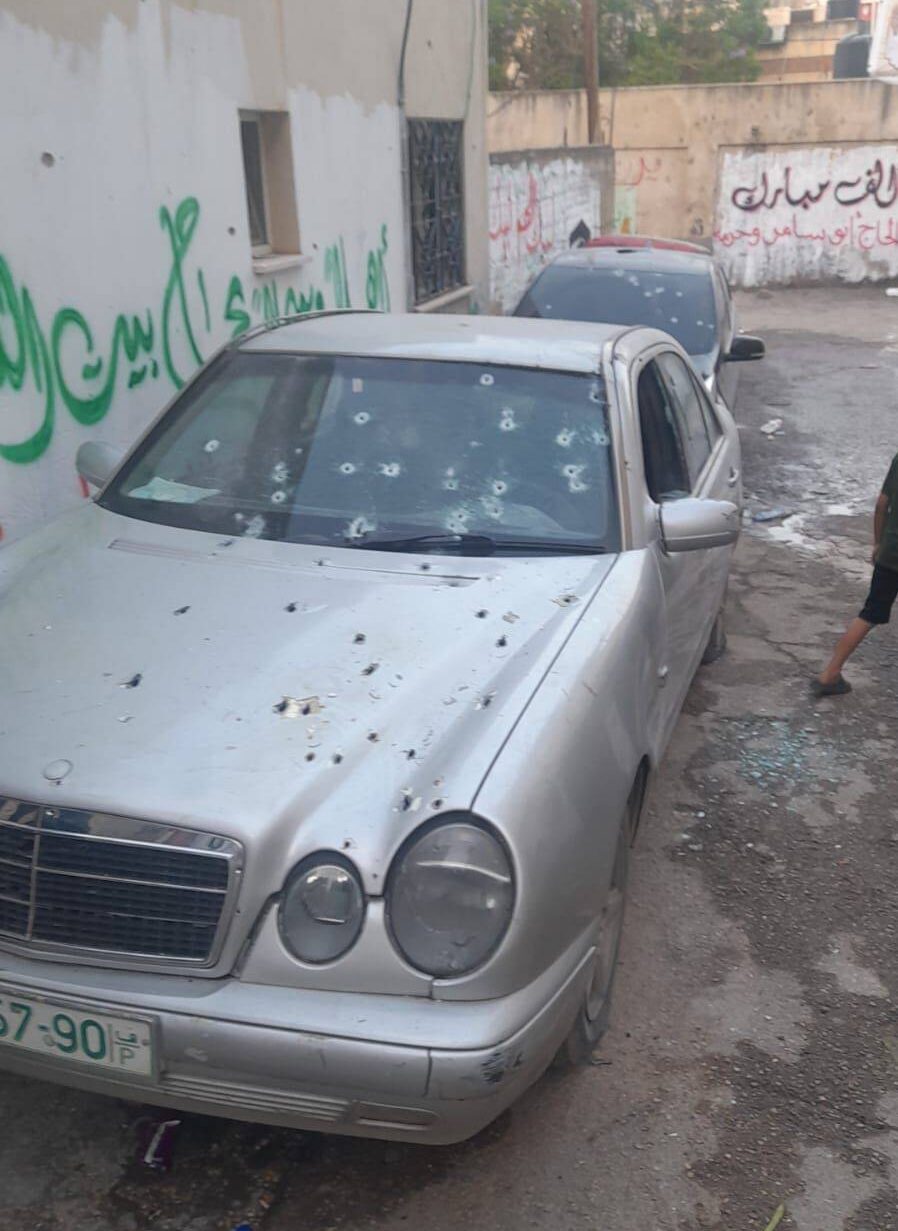01 July 2024 | International Solidarity Movement | Jordan Valley

June 29 began like any other for Ayman Ghraib’s, 41, who is an activist from the village of Tamoun, north-east of Nablus.
Ayman was scheduled to film with Al Jazeera about illegal settlements, settler attacks and confiscation of land and water in the Jordan Valley, sharing his stories of attacks from settlers and the occupation army.
The filming was supposed to be in a symbolic area of the valley and Ayman was travelling in his friend’s car as his car was destroyed by occupation forces, who slashed the tyres and put sand in the engine.
Ayman reports arriving around 12:00 p.m. As usual, he said, they were stopped at a checkpoint by the occupation soldiers and asked to get out of the car. Al Jazeera crew was on the other side waiting and when they saw the occupation soldiers holding him, they went to the barrier and started filming. The soldiers told the crew to leave as Ayamin would be released shortly.
The sun was burning, and the temperature was about 40 degrees Celsius, and Ayman reported starting to collapse and telling the officer in charge that he has heart and breathing problems. The office laughed and said, “I’m not a seven-year-old boy, I don’t believe what you’re saying.”
After more than two hours of detention, the symptoms of the sun’s heat began to increase, with severe headache, and body pain made it difficult to breathe until Ayman fell on the ground. The officers, who refused to call an ambulance, started to kick and punch him and hit him with the butts of their guns, while shouting nasty words. He felt that he was going to lose consciousness, when the soldiers poured ice water on his head: he felt like he was being electrocuted. They opened his mouth and poured water in his throat and nose until he almost choked. While he was getting lot worse, the soldiers moved Ayman in his friend’s car and told him to help, going every now and then to pour ice water on his head: every time it was a shock.
Soldiers also took Ayman’s phone, taking pictures of materials on it and then finally released them. He arrived home completely exhausted and received the needed first aid.
Ayman said: “This is not the first time that I have been subjected to similar attacks by the occupation army, in addition to having been imprisoned more than once. Every time I am charged with crimes, I had not committed any violent act against the army or settlers.
“All I can say is that I closely film violation towards the inhabitants of the Jordan Valley and spread through social media the confiscation of land and water and the suffering of the inhabitants of the Valley from Israel’s policy of displacement against them.”
Ayman reported that settlers spread his photographs and publicly incite to kill him, asking the army to arrest him. He has also received death threats from settlers. Several of his friends who had transported him around have been attacked and harassed and had their cars damaged by the occupation army.
Ayman said: “I’m not inciting against anyone, just fighting for my people to have land and water before they’re all confiscated for the benefit of the settlers. It’s our land and we don’t want to go anywhere else, and we don’t want settlers to replace us.”
